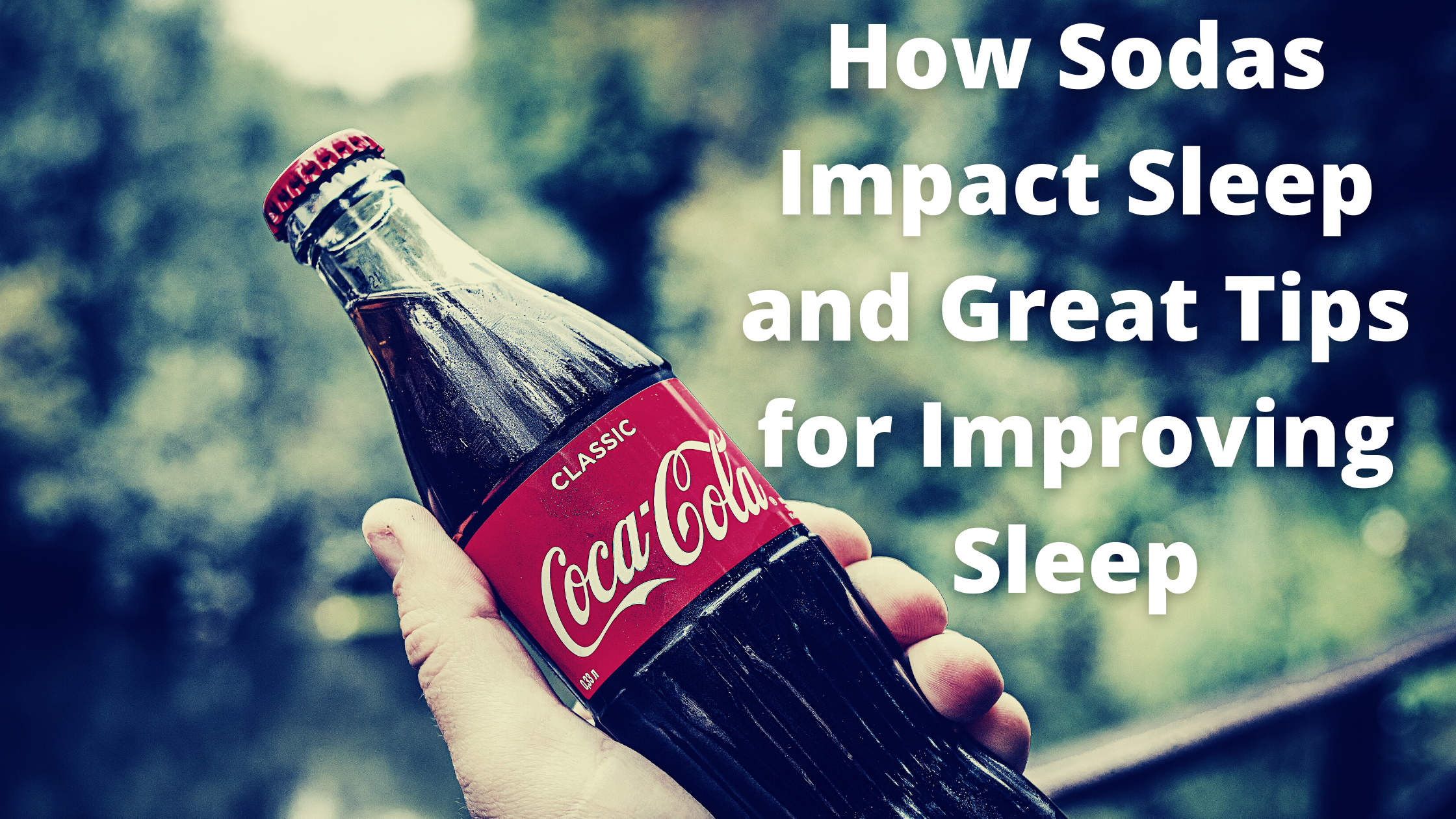
Carbonated drinks are heavily consumed throughout the US. Whether you know them as pop, soda, Coke, or another name, carbonated drinks are consumed at a high daily rate by American youth and adults. Soft drinks are also the most common source of added sugar in the average American diet. They are very popular, despite their link to a myriad of health problems, including weight gain, obesity, type 2 diabetes, and heart, liver, and kidney disease.
Soda can also negatively impact sleep. Continue reading to find out more about how these drinks can delay the necessary hours of precious sleep.
How soda affects sleep
Soft drinks are sugar-sweetened beverages. Sweeteners may include brown sugar, corn syrup, dextrose, fructose, and glucose. All of these added forms of sugar can increase the production of fat cells and lead to health issues like obesity, insulin resistance, diabetes, and other inflammatory diseases or hormonal imbalances.
There are a few ways that soft drinks directly impact sleep, including disruption from high amounts of caffeine, weight gain, obesity, heartburn, and nocturia.
Caffeine
Caffeinated drinks include soda, coffee, and tea. About 96% of the country's caffeine consumption comes from these three sources. About 85% of the US population drinks at least one caffeinated beverage a day.
Caffeine increases alertness, so consuming it close to bedtime can make falling and staying asleep more difficult. One study found that consumption of caffeinated sugar-sweetened beverages was higher for adults who slept five or fewer hours per night, compared to the recommended 7-8 hours.
Moderate amounts of caffeine during the day are not necessarily unhealthy. Shift workers who must be alert at hours normally reserved for sleep need an extra boost from caffeinated beverages. However, the effects of caffeine take several hours to wear off, and you should avoid drinking them close to your normal bedtime.
Weight gain
The relationship between sugar-sweetened beverages and obesity is well-understood. Studies suggest there is a link between the two due to the high sugar content. A 12-oz soft drink can have anywhere between 10-13.5 teaspoons of sugar, so these beverages can have a significant impact on your blood glucose levels.
Significant weight gain can lead to obesity, and obesity can open the door for several other health issues. Obesity can increase the risk for obstructive sleep apnea (OSA). This is a sleep disorder in which the muscles in the back of the throat relax, making it very difficult to breathe. Your body wakes up several times to begin breathing, all the while interrupting your sleep. When you wake up, you may not remember waking up to begin breathing, but you will feel very tired and unsure why. OSA can also lead to low oxygen levels and trigger inflammatory mechanisms that lead to other issues.
Another condition, known as obesity hypoventilation syndrome, causes shallowing breathing during sleep and can lead to feelings of excessive daytime sleepiness. It occurs in individuals with a BMI of at least 30, which falls within the 95th percentile for adults.
Weight gain can make you more likely to snore, and this may disrupt sleep for you and your partner. Those with chronic snoring are often advised to lose weight.
Heartburn
Heartburn occurs when the lower esophageal sphincter (a muscle that closes off the esophagus from the stomach) doesn't constrict enough after you consume food or drinks. This can cause stomach acid to re-enter the esophagus (reflux). Many people experience occasional heartburn, but frequent symptoms can lead to a chronic condition known as gastroesophageal reflux disease (GERD).
The discomfort of heartburn can disrupt sleep, so those with heartburn may want to avoid foods and drinks that trigger these symptoms. One study found that consuming sugar-sweetened beverages and other carbonated beverages increases your risk of developing heartburn symptoms that can disrupt sleep.
Nocturia
Nocturia is the need to urinate in the middle of the night, which can disrupt your sleep. About 1/3 of people experience nocturia. While underlying medical conditions and other factors, such as medications, can lead to nocturia, drinking soda before going to sleep may also cause nighttime bathroom trips.
It's also important to note that the relationships between sleep and sugar-sweetened beverages may be bidirectional. Some studies have shown that sleep loss can lead to biological and behavioral changes that influence the food and drinks we consume. Lack of sleep can also impact ghrelin and leptin, two hormones that regulate sleep, causing you to feel hungrier and consume more during the day.
How soda drinks can improve sleep
Sugar-sweetened beverages carry little nutritional value and interrupt sleep, while also causing other health issues. Therefore, you should reduce your intake as this can lead to benefits. However, many people struggle with craving sugary foods, making it difficult to lower the amount of sugar consumed.
If you're trying to cut down on soft drinks and improve sleep, the following tips may be helpful:
- Substitute soft drinks with cold water, reducing the sugar consumed and improving hydration
- Healthy alternatives like milk or 100% fruit juice can help curb a craving for something other than water
- Flavoring water with natural ingredients like cucumbers or berries can also help
- If you need a caffeine boost in the morning, switch to unsweetened coffee or tea and avoid all caffeinated beverages in the evening to help fall asleep normally
- Check nutritional labels to make sure you're not consuming drinks with high amounts of sugar and caffeine
If you are having trouble sleeping, this is problematic as sleep deprivation can cause deleterious effects on normal functioning. Try making these dietary changes, but if you are still struggling, then there may be another, more serious disorder that needs to be attended to. Click the orange button below to take a free online sleep test and speak with a sleep professional today.
https://www.sleepfoundation.org/nutrition/soda-and-sleep

